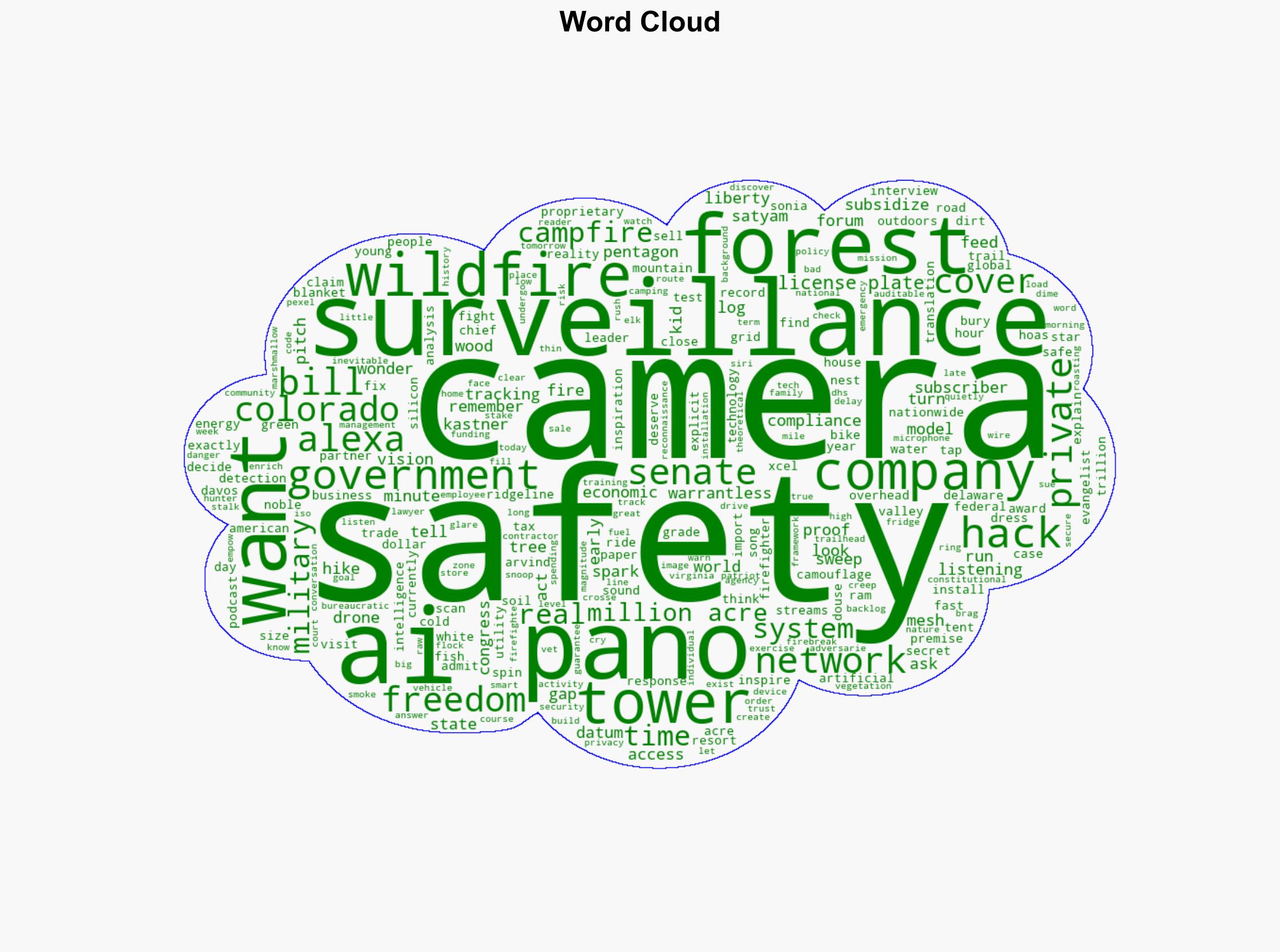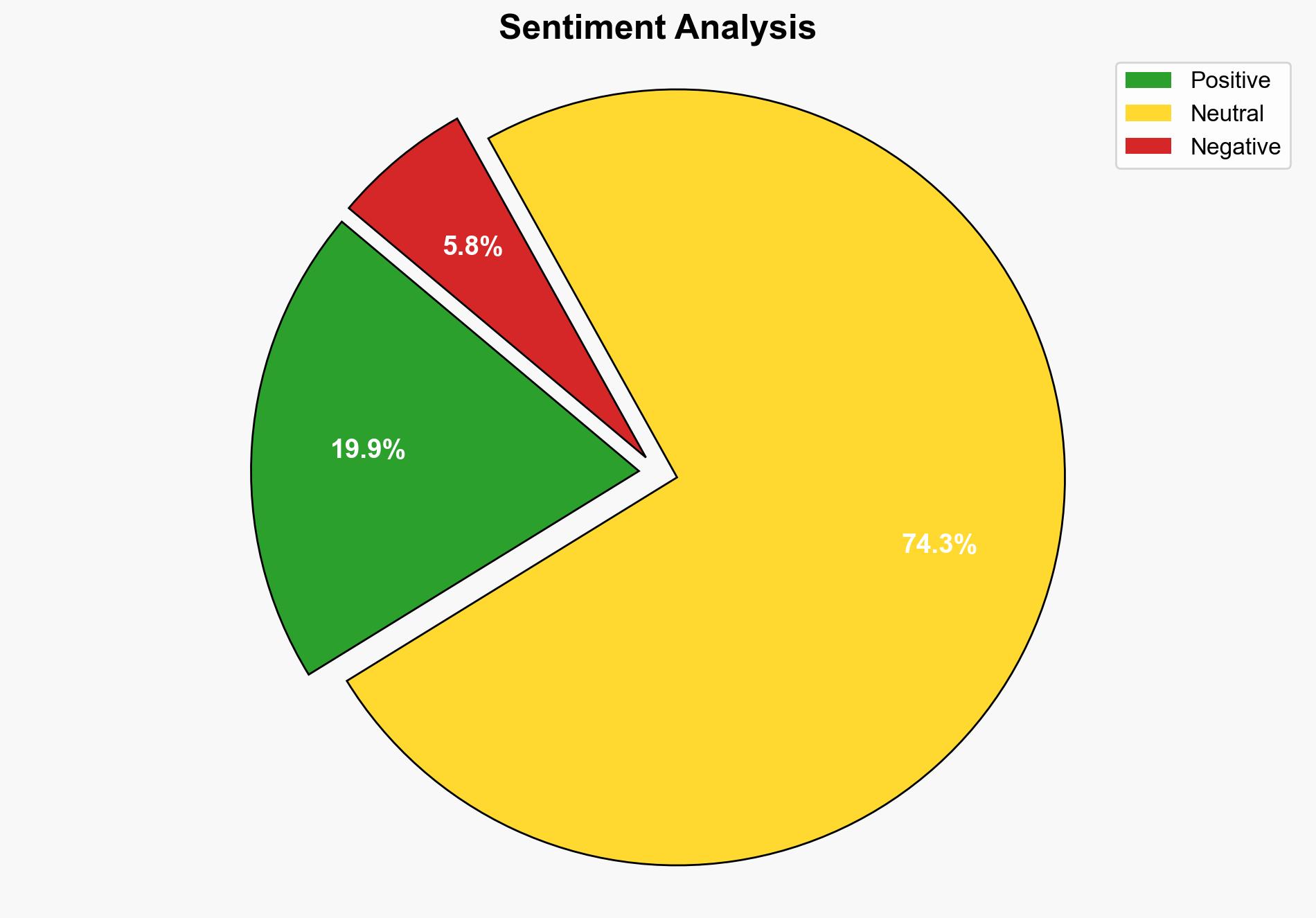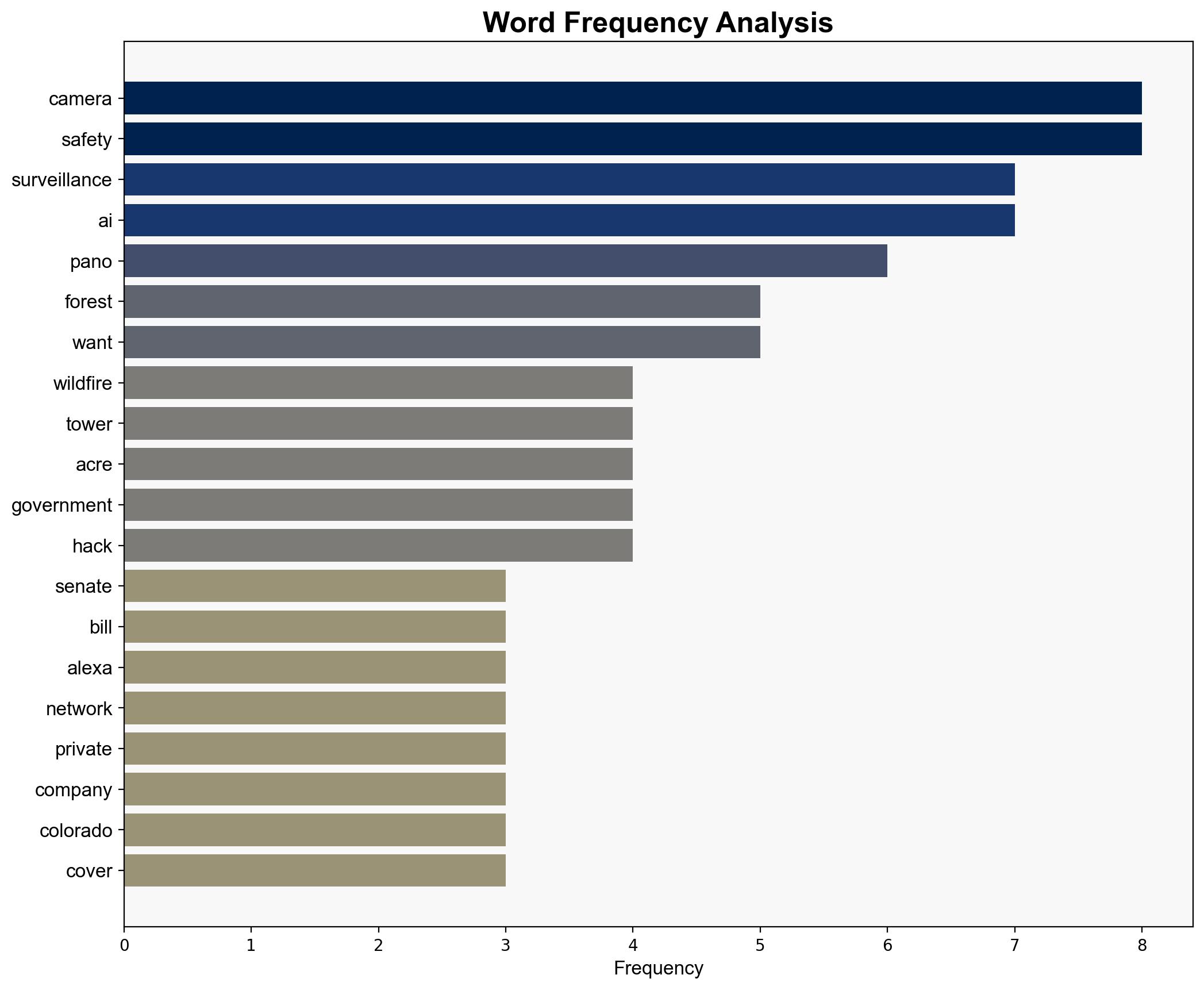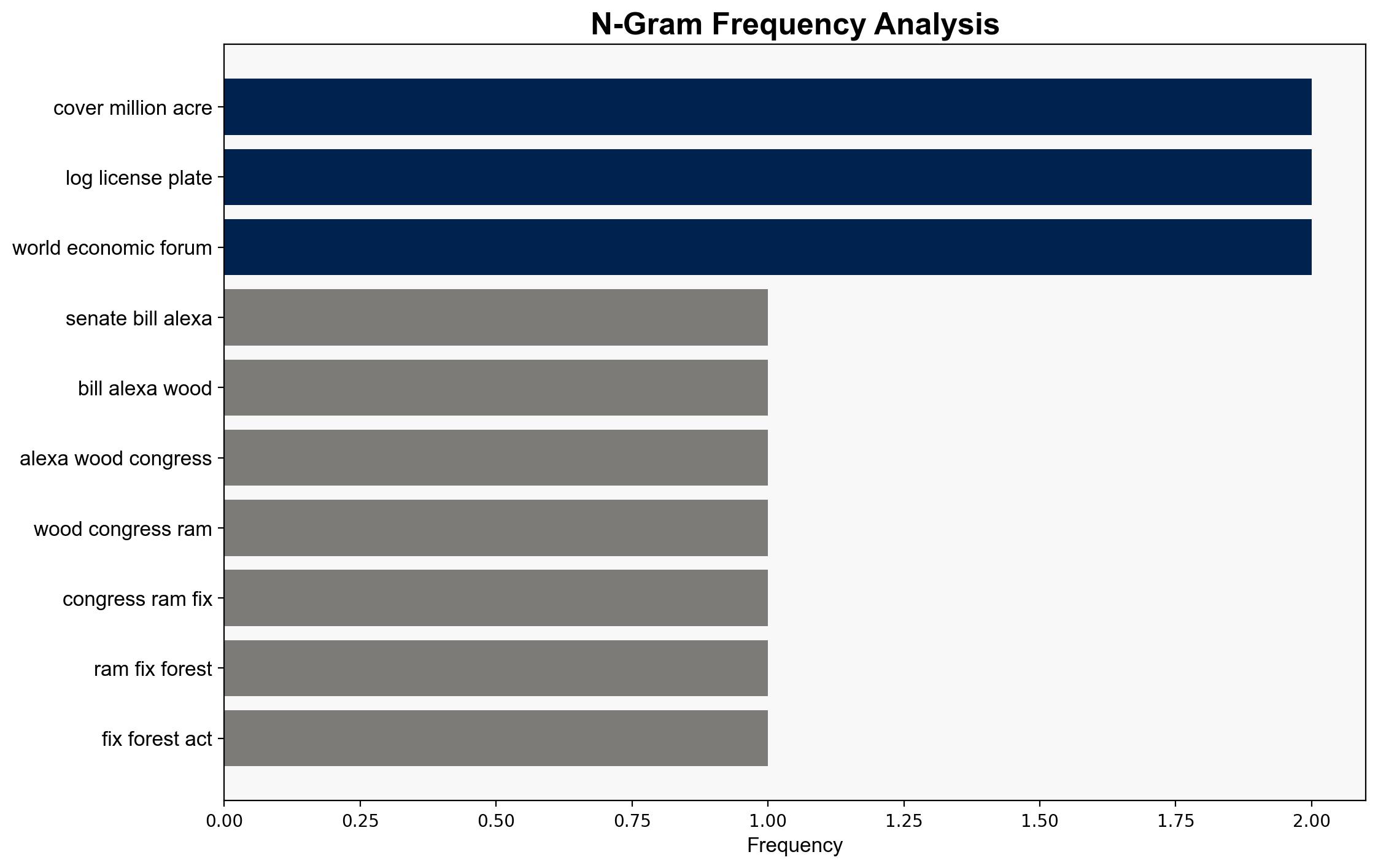Senate Bill 1462 Putting Alexa in the Woods – Americanthinker.com
Published on: 2025-10-21
Intelligence Report: Senate Bill 1462 Putting Alexa in the Woods – Americanthinker.com
1. BLUF (Bottom Line Up Front)
The strategic judgment indicates a moderate confidence level that Senate Bill 1462 could lead to significant privacy concerns under the guise of wildfire management. The most supported hypothesis suggests the bill’s implementation may create a nationwide surveillance infrastructure, posing risks to civil liberties. Recommended action includes a thorough review of privacy implications and potential regulatory oversight to ensure transparency and accountability.
2. Competing Hypotheses
1. **Hypothesis A**: Senate Bill 1462 is primarily a wildfire management initiative aimed at early detection and rapid response to wildfires, leveraging advanced technology to protect forests and communities.
2. **Hypothesis B**: The bill serves as a pretext for establishing a nationwide surveillance network, potentially infringing on privacy rights and civil liberties, with technology repurposed for broader monitoring beyond wildfire management.
Using the Analysis of Competing Hypotheses (ACH) 2.0, Hypothesis B is better supported due to the emphasis on surveillance capabilities and the involvement of private companies with potential conflicts of interest in data handling and privacy.
3. Key Assumptions and Red Flags
– **Assumptions**:
– Hypothesis A assumes the primary intent is environmental protection without ulterior motives.
– Hypothesis B assumes the technology’s surveillance potential will be exploited beyond its stated purpose.
– **Red Flags**:
– Lack of transparency in data usage and storage.
– Potential conflicts of interest with private companies managing sensitive data.
– Absence of clear regulatory frameworks to govern the use of surveillance technology.
4. Implications and Strategic Risks
– **Privacy Concerns**: The deployment of surveillance technology could lead to widespread privacy violations, eroding public trust.
– **Cybersecurity Risks**: The infrastructure could be vulnerable to hacking, providing adversaries with reconnaissance capabilities.
– **Geopolitical Impact**: International perception of increased domestic surveillance could strain diplomatic relations, especially with nations prioritizing privacy.
– **Economic Implications**: Potential backlash against companies involved could impact their market position and financial stability.
5. Recommendations and Outlook
- Conduct a comprehensive privacy impact assessment to identify potential risks and mitigation strategies.
- Establish clear regulatory guidelines and oversight mechanisms to ensure accountability and transparency.
- Engage in public consultations to address concerns and build trust.
- Scenario Projections:
- **Best Case**: Effective wildfire management with minimal privacy infringements.
- **Worst Case**: Widespread surveillance abuse leading to significant civil liberties erosion.
- **Most Likely**: Partial implementation with ongoing debates over privacy and security.
6. Key Individuals and Entities
– Sonia Kastner
– Arvind Satyam
– Pano AI
– Xcel Energy
7. Thematic Tags
national security threats, cybersecurity, privacy rights, surveillance, wildfire management





